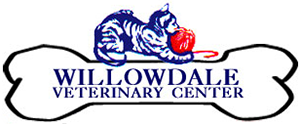Library
-
Milbemycin oxime + lufenuron is a heartworm disease preventive that also treats internal parasites (e.g., whipworms, hookworms, and roundworms) and controls flea populations in dogs. Milbemycin oxime + lufenuron is given by mouth as a flavored chew tablet. At prescribed doses, this medication is well-tolerated; when used off-label at higher doses for treating mites, side effects have been observed. Your veterinarian will advise you on the safety of milbemycin oxime + lufenuron use in your dog. If you suspect an overdose or an adverse reaction to the medication, call your veterinary office immediately.
-
Milbemycin oxime + lufenuron + praziquantel is a heartworm disease preventive that also treats certain internal parasites and controls fleas in dogs. This combination medication is given by mouth as a flavored chew tablet. At prescribed doses, this medication is well-tolerated. Certain dog breeds are more sensitive to milbemycin than others; your veterinarian will advise you on the safety of milbemycin use in your dog. If you suspect an overdose or an adverse reaction to the medication, call your veterinary office immediately.
-
Milbemycin oxime + praziquantel is a heartworm disease preventive that also controls tapeworms, hookworms, roundworms, and whipworms in dogs. It is given by mouth as a flavored chew tablet and must be given with a meal to ensure adequate absorption. At prescribed doses, this medication is well-tolerated. Your veterinarian will advise you on the safety of this combination product’s use in your dog. If you suspect an overdose or an adverse reaction to the medication, call your veterinary office immediately.
-
Milbemycin oxime + spinosad is a heartworm disease preventive that also controls hookworms, roundworms, whipworms, and fleas in dogs. Milbemycin oxime + spinosad is given by mouth as a flavored chew tablet. At prescribed doses, this medication is well-tolerated. Your veterinarian will advise you on the safety of this product’s use in your dog. If you suspect an overdose or an adverse reaction to the medication, call your veterinary office immediately.
-
Moxidectin is an avermectin antiparasitic that is used to prevent heartworms and treat intestinal parasites. Imidacloprid treats and prevents fleas. These two drugs are combined in one topical product for use in cats, dogs, and ferrets. Use as directed. Side effects are uncommon and usually short-lived, however, if you suspect an overdose or an adverse reaction to the medication, call your veterinary office immediately.
-
Moxidectin + sarolaner + pyrantel is a heartworm disease preventive for dogs that also treats and prevents internal parasites (hookworms and roundworms) and kills fleas and ticks. This medication is given by mouth as a flavored chew tablet. At regular doses, this medication is well-tolerated. Your veterinarian will advise you on the safety of moxidectin + sarolaner + pyrantel use in your dog. If you suspect an overdose or an adverse reaction to the medication, call your veterinary office immediately.
-
Pentosan polysulfate sodium is an injectable disease-modifying osteoarthritis drug (DMOAD) used to treat non-infectious and traumatic arthritis in dogs. It is also used off-label in cats. Follow your veterinarian’s instructions on how to administer the injection and dispose of the needle and syringe appropriately. Side effects are rare when given according to label recommendations and at prescribed intervals. Do not use in pets with a known hypersensitivity to it, in pets with known or suspected bleeding disorders or immune-mediated arthritis, or in pets with severe kidney or liver disorders.
-
A perineal hernia is a protrusion of tissue through the muscle of the perineum. Potential causes, clinical signs, and treatment are explained. The prognosis ranges from good to poor, depending on the ability to perform surgery and the pet's response to surgery. Perineal hernias have the potential to be life-threatening.
-
Prazosin is given by mouth and is used to reduce urinary sphincter tone to relax the bladder and allow easier urination in dogs and cats. It may also be used as a treatment for congestive heart failure, systemic hypertension, or pulmonary hypertension in dogs. Give as directed. Common side effects include lethargy, vomiting, diarrhea, nausea, and constipation. This medication should be used with caution in pets with kidney disease or other conditions that cause low blood pressure, as well as in MDR1-positive dogs. If a negative reaction occurs, contact your veterinarian.
-
Telmisartan is an angiotensin receptor blocker (ARB) used to treat high blood pressure in cats and off-label to treat kidney disease in both cats and dogs. This medication is given by mouth in the form of a liquid or tablet. It may be given with or without food but is better absorbed if given on an empty stomach. Side effects may include vomiting, diarrhea, lack of appetite, low blood pressure, and decreased energy. There are several drugs that can contribute to adverse effects when given with telmisartan. Be sure to tell your veterinarian about any medications (including vitamins, supplements, or herbal therapies) that your pet is taking. If you suspect an overdose or an adverse reaction to the medication, call your veterinary office immediately.
